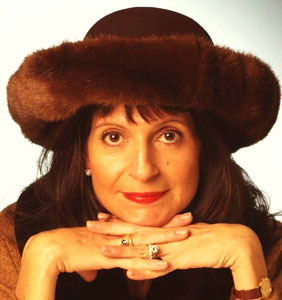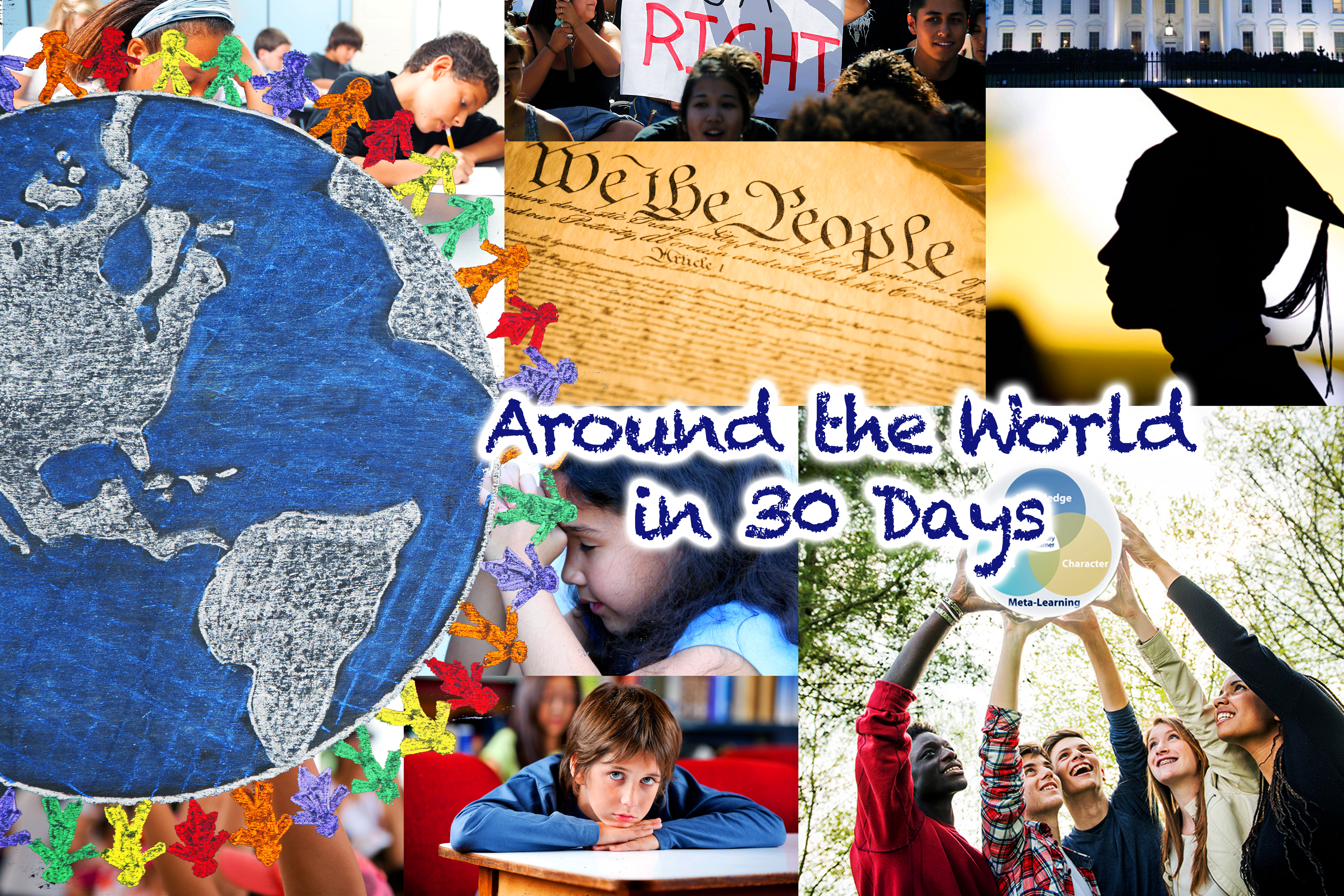
C. M. Relatório educação global do Rubin
em agosto, global collaboration and cooperation was a recurrent theme in A Pesquisa Global para a Educação stories and interviews. I talked to the CEO of Edmodo, a leading innovator in K-12 blended learning, about how teachers, learning platforms, software, pais, and students across the globe can work together in new ways thanks to digital technology. And I caught up with international guests and teachers at Edmodo’s annual conference, EdmodoCon, which has been called the educational collaboration event of the year. Também este mês, Maciej Jakubowski (Universidade de Varsóvia) shared his research on Polish Ed Reform along with his tips for the rest of the world. Anthony Carnevale (Georgetown University) discussed what’s really happening with US Jobs, while Cynthia Lopez (former Film Commissioner for the NYC Mayor’s Office of Media and Entertainment) gave us an update on entertainment business jobs in NYC. Finalmente, nossa Top 12 Global Teacher Bloggers talked about building partnerships between the classroom and the home.
On August 4th, EdmodoCon 2015, Edmodo’s annual conference online, was streamed live from San Mateo, Califórnia. Thousands and thousands of teachers from all over the world logged on to share the ways they are using Edmodo and other tech tools to personalize learning. Catching up with the international participants, I heard many real world viewpoints on blended learning. From Spain, Teresa Perles told me that, “Long explanations on the blackboard have definitely become outmoded in our school. Hoje, all classrooms have a screen on which we can project the presentations we have created or chosen beforehand, and then we share them with students; or we implement flipped teaching.” Lisa Goochee, former teacher in Brazil and now at Stanford Learning Design added, “The most outdated and destructive vestigial feature in the modern K-12 space is the emphasis on standardized testing along with the college admissions and enrollment processes which rely on these testing conventions. With the digital tools we have on hand, we could liberate children to experience and demonstrate their learning in far more compelling ways via live documentation of community-based or real-world endeavors.”
I talked to Vibhu Mittal (CEO of Edmodo – the world’s number one K-12 social learning network) and Michael Horn (co-founder and executive director of the Clayton Christensen Institute). The resources blended learning can provide to teachers and students are growing exponentially every day. Keeping up with the changes in educational technology can be a challenge. Horn notes that “Precisamos apoiar os professores nesta mudança na prática, e nós precisamos de criar experiências mais personalizadas de aprendizagem para professores, bem assim que podemos reconhecer e certificar o seu domínio de certas partes de seu ofício e apoiá-los nas áreas onde eles precisam e querem melhorar.”
Maciej Jakubowski (Universidade de Varsóvia) discussed with me how Poland turned around its education system from having one of the lowest PISA achievement rates in Europe to one of the best. The story serves as an inspiration to any struggling national educational system. His advice for further improvement in Poland and abroad — “Temos que dar mais apoio para os alunos mais fracos, enquanto ao mesmo tempo, precisamos reconhecer melhor os diferentes talentos e encontrar várias maneiras de fazê-los prosperar dentro do sistema escolar abrangente.”
Some interesting news about the US economy: Enquanto empregos de salário médio mostram poucos sinais de recuperação, a new study from Georgetown University discovered there have been more “good” empregos (which pay at least $53,000 um ano) than people have assumed, e 2.8 milhões do 2.9 million good jobs gained in the recent period of recovery have gone to college graduates. Anthony Carnevale, the lead author of this report, gave me the scoop on this important data, noting that “Bons empregos que foram destaque neste recuperação incluem gestores, desenvolvedores de software, médicos e cirurgiões, enfermeiros, analistas financeiros e ocupações de computador,” all pointing toward the continued importance of a college education, despite what certain pessimists might claim.
And some good news for the NYC economy: I talked to the owners of the thriving Silvercup Studios and Cynthia López (former Film Commissioner for NYC) about Silvercup’s expansion into the Bronx and how filming movies and TV shows in New York boosts revenue and the local economy. As López noted, “A indústria gera bilhões de dólares para a economia local e emprega 130,000 Os nova-iorquinos nos bastidores.”
Finalmente, bringing it back to the all important level of the learning journey as we head back to school, I asked our top global teacher bloggers how parents can best help teachers and vice versa. Pauline Hawkins recommended that all parties “find a common ground,” while Richard Wells suggested that students should keep daily logs for both teachers and parents to look at.


Junte-se a mim e líderes de renome mundial, incluindo Sir Michael Barber (Reino Unido), Dr. Michael Bloco (EUA), Dr. Leon Botstein (EUA), Professor Clay Christensen (EUA), Dr. Linda, Darling-Hammond (EUA), Dr. MadhavChavan (Índia), Professor Michael Fullan (Canadá), Professor Howard Gardner (EUA), Professor Andy Hargreaves (EUA), Professor Yvonne Hellman (Holanda), Professor Kristin Helstad (Noruega), Jean Hendrickson (EUA), Professor Rose Hipkins (Nova Zelândia), Professor Cornelia Hoogland (Canadá), Honrosa Jeff Johnson (Canadá), Senhora. Chantal Kaufmann (Bélgica), Dr. EijaKauppinen (Finlândia), Secretário TapioKosunen Estado (Finlândia), Professor Dominique Lafontaine (Bélgica), Professor Hugh Lauder (Reino Unido), Senhor Ken Macdonald (Reino Unido), Professor Geoff Mestres (Austrália), Professor Barry McGaw (Austrália), Shiv Nadar (Índia), Professor R. Natarajan (Índia), Dr. PAK NG (Cingapura), Dr. Denise Papa (US), Sridhar Rajagopalan (Índia), Dr. Diane Ravitch (EUA), Richard Wilson Riley (EUA), Sir Ken Robinson (Reino Unido), Professor Pasi Sahlberg (Finlândia), Professor Manabu Sato (Japão), Andreas Schleicher (PISA, OCDE), Dr. Anthony Seldon (Reino Unido), Dr. David Shaffer (EUA), Dr. Kirsten Immersive Are (Noruega), Chanceler Stephen Spahn (EUA), Yves Theze (LyceeFrancais EUA), Professor Charles Ungerleider (Canadá), Professor Tony Wagner (EUA), Sir David Watson (Reino Unido), Professor Dylan Wiliam (Reino Unido), Dr. Mark Wormald (Reino Unido), Professor Theo Wubbels (Holanda), Professor Michael Young (Reino Unido), e Professor Minxuan Zhang (China) como eles exploram as grandes questões da educação imagem que todas as nações enfrentam hoje.
A Pesquisa Global para Educação Comunitária Página
C. M. Rubin é o autor de duas séries on-line lido pelo qual ela recebeu uma 2011 Upton Sinclair prêmio, “A Pesquisa Global para a Educação” e “Como vamos Leia?” Ela também é autora de três livros mais vendidos, Incluindo The Real Alice no País das Maravilhas, é o editor de CMRubinWorld, e é um Disruptor Fundação Fellow.
Siga C. M. Rubin no Twitter: www.twitter.com/@cmrubinworld





Comentários Recentes